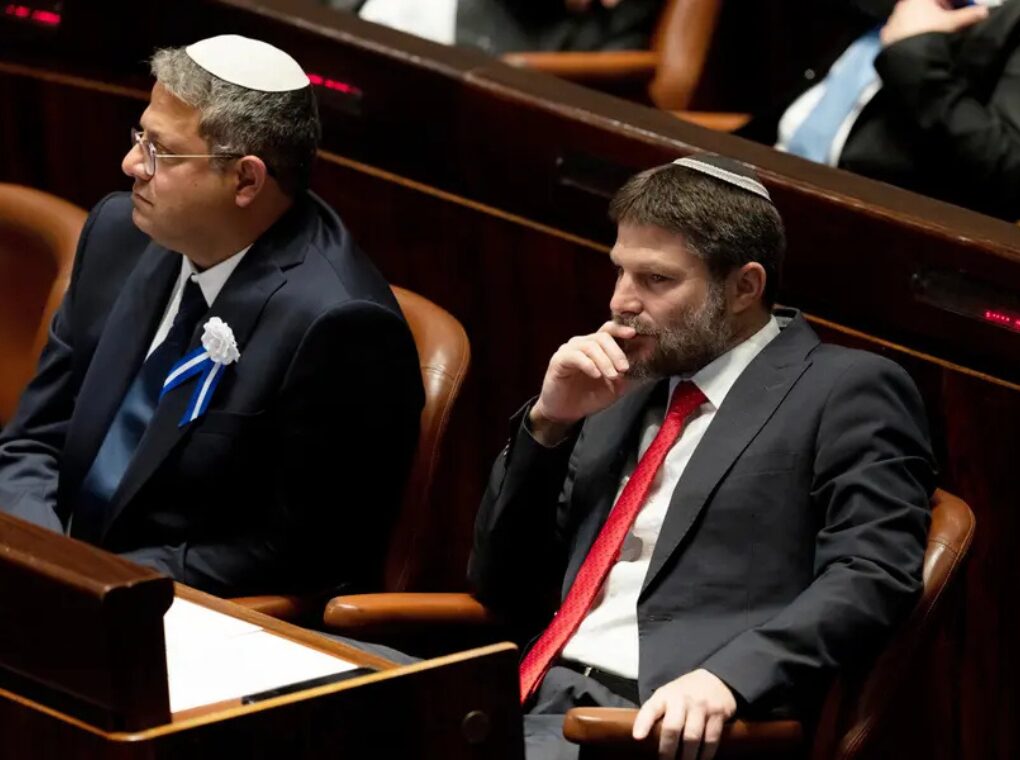In a bold diplomatic move that adds to mounting international pressure on Israel, the Netherlands has declared Israeli Finance Minister Bezalel Smotrich and National Security Minister Itamar Ben-Gvir persona non grata, effectively banning them from entering the country. The decision, announced by Dutch Foreign Minister Caspar Veldkamp, comes amid intensifying global condemnation of the humanitarian crisis in Gaza and the inflammatory rhetoric of Israel’s far-right leadership.
A Rare Rebuke of Sitting Israeli Ministers
In a letter to the Dutch parliament on Monday, Veldkamp cited the ministers’ repeated incitement of settler violence, their support for illegal settlement expansion in the West Bank, and their open calls for ethnic cleansing in Gaza as justification for the decision.
“They repeatedly incited settler violence against Palestinians, promoted illegal settlement expansion, and called for ethnic cleansing in Gaza,” Veldkamp wrote.
This move marks one of the most high-profile diplomatic rebukes against members of Israeli Prime Minister Benjamin Netanyahu’s coalition, signaling a growing willingness among Western governments to hold far-right Israeli figures accountable for inflammatory actions and policies contributing to instability in the region.
Ministers Fire Back, Accuse West of Antisemitism
In response, both Smotrich and Ben-Gvir lashed out at the Dutch government, accusing it of antisemitism and appeasement. Smotrich claimed European leaders had “surrendered to the lies of radical Islam” and accused them of falling for “rising antisemitism.” Ben-Gvir, known for his provocative and extreme rhetoric, tweeted that in Europe, “terrorists are welcomed, and Jews are boycotted.”
“Even if I’m banned from entering all of Europe, I’ll continue to act for Israel,” Ben-Gvir said defiantly.
Mounting International Sanctions and Condemnation
The Netherlands joins a growing list of countries taking action against Smotrich and Ben-Gvir. In June, the UK, Canada, Australia, New Zealand, and Norway imposed financial sanctions on the ministers. Earlier this month, Slovenia became the first EU country to back sanctions. Although a broader EU proposal—led by Sweden and supported by the Netherlands—failed to achieve unanimous approval, momentum is building within Europe for stronger measures.
Later today, EU leaders are expected to meet and discuss a unified stance on the two Israeli ministers. Diplomatic sources suggest that further sanctions or symbolic actions could be on the table if Israel continues to obstruct humanitarian access to Gaza.
What Does “Persona Non Grata” Mean?
The designation of persona non grata is a powerful diplomatic tool that allows a country to bar foreign officials from entry, typically used in cases involving serious breaches of international norms or behavior deemed hostile to the host country’s values. Under Article 9 of the Vienna Convention on Diplomatic Relations, the host state does not need to justify the designation.
While largely symbolic in this case—neither minister was known to have planned travel to the Netherlands—it is a clear signal of diplomatic isolation and moral condemnation.
A Deepening Humanitarian Crisis in Gaza
The diplomatic fallout comes as Gaza faces a worsening humanitarian catastrophe. With over 59,000 Palestinians reportedly killed in Israel’s military campaign—most of them civilians—and more than 20,000 children treated for acute malnutrition, international alarm is rising.
Dutch Prime Minister Dick Schoof emphasized the urgency of immediate aid delivery during a call with Israeli President Isaac Herzog.
“The people of Gaza must be given immediate, unfettered, safe access to humanitarian aid,” Schoof said, reiterating the Netherlands’ position.
Foreign Minister Veldkamp also hinted that the Netherlands would push to suspend the trade component of the EU-Israel Association Agreement if Israel fails to comply with its humanitarian obligations.
Shifting Dynamics in Europe-Israel Relations
The Dutch action represents a significant shift in the traditionally strong relations between many Western governments and Israel. While official Israeli policy has long been defended as part of Western democratic alliances, the far-right drift of Netanyahu’s government, particularly through figures like Smotrich and Ben-Gvir, has tested those ties.
Both ministers have long histories of extremism. Smotrich has denied the existence of a Palestinian nation and called for annexing the West Bank. Ben-Gvir, a former disciple of the banned Kach movement, has openly obstructed humanitarian aid convoys and demanded the total occupation and expulsion of Palestinians from Gaza.
With Western nations increasingly forced to choose between democratic principles and political alliances, the move by the Netherlands may be a bellwether for broader international realignment on the Israeli-Palestinian conflict.
